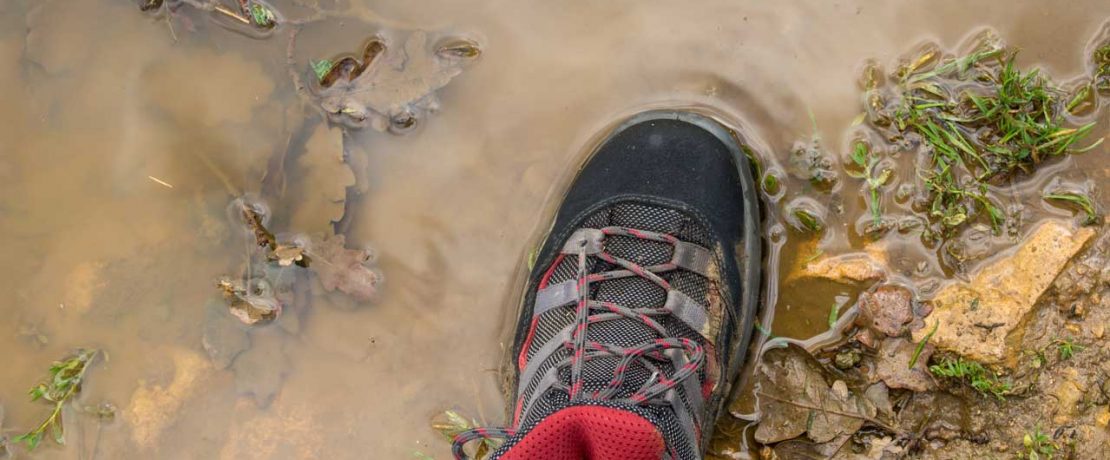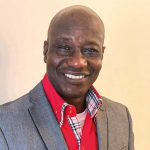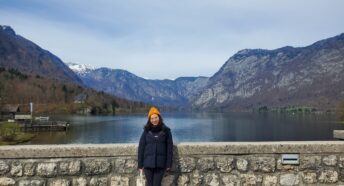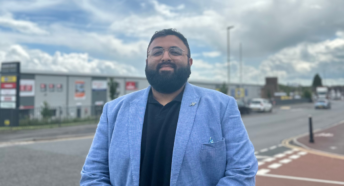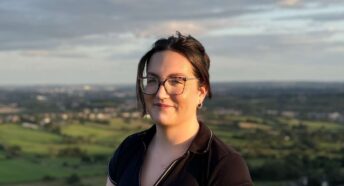Maxwell Ayamba: ‘My England’
Access champion Maxwell Ayamba has connected hundreds of people from black, Asian and minority ethnic communities with the outdoors. He explains why he loves helping people discover the English countryside.
I grew up in rural Ghana, where we were taught to revere nature and see ourselves as its custodians. Our concept of nature was not as something for conservation, leisure and recreation, as it’s often perceived in the west. It was the source of our livelihoods, and we depended on it for everything. It was biocentric, not anthropogenic: we believed that all human beings came from, and are part of, nature – and to nature we shall return. It is a web of life.
Many people had a simple, subsistence lifestyle, with freedom of space to roam and enjoy the environment and nature. Here, when I ask people what nature is, they tend to point to the trees or green spaces outside. They don’t see themselves as part of nature, which is very strange to me.
Winning a scholarship to study journalism in Cardiff was a culture shock; I talk about cultural severance – it severed me from my own rural roots. My relationship with the English countryside only began when I pursued my postgraduate studies in environmental management at Sheffield Hallam University.
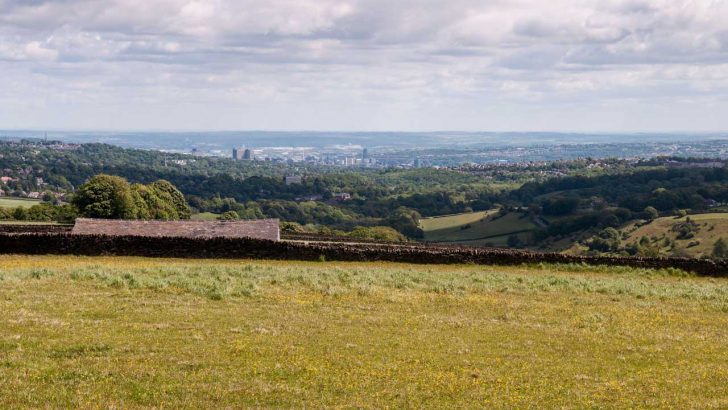
I was the only person of colour on the course, and I had a lot to learn about the ecology and cultural history of the countryside. But I fell in love with the Peak District during our field studies.
Green spaces for health
After graduation, I was involved in setting up an environmental charity with two Afro-Caribbean friends (100 Black Men Walk for Health, in 2004) to help more BAME people access and participate in the countryside – one of my proudest achievements. We particularly wanted to promote walking among middle-aged black men, who are susceptible to diseases such as Type 2 diabetes and high blood pressure, and mental health issues.
Today, our group is known as Walk4Health, and women and younger people have joined us. But its aim remains the same: to give people an opportunity to walk and talk, to share their experiences of life, for their physical and mental health. At a time when people’s health and wellbeing are closely linked to their access to green spaces, those things are more important than ever.
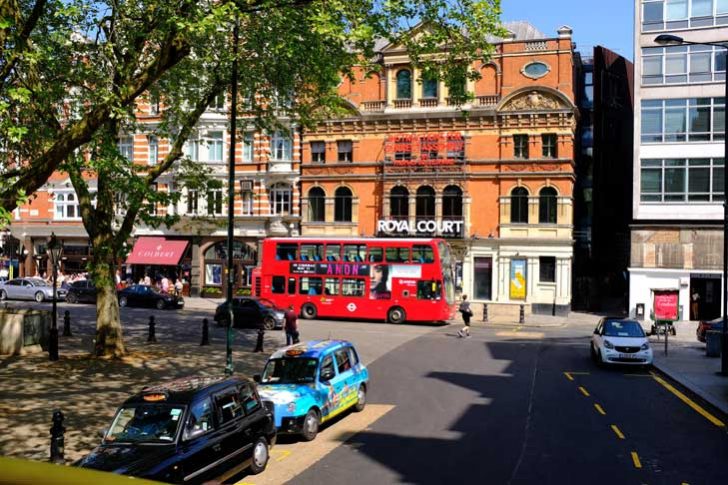
Our walking group inspired the Royal Court Theatre play, Black Men Walking. It was a powerful, lyrical production about 500 years of black British history in the countryside; a history which is largely unwritten. We’ve had a black presence in the countryside in Roman times and Tudor times, but those narratives have not been recorded. That was the ethos of the play. It was significant because it raised issues that are even more relevant today, at a time in the history of Britain when issues of race and national identity, and why Black Lives Matter, have come to the forefront.
Many people from the Windrush generation, who came here to work or study and ended up staying for many, many years, have never set foot in the countryside. Migrants and those living in urban communities often have a daily struggle in terms of jobs, health, education, and everything else, and the last thing on their minds is leisure and recreation.
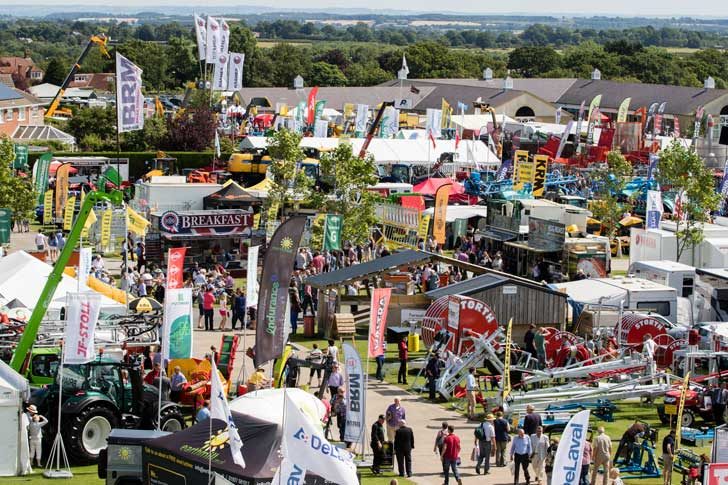
Last year, I took a group of older black women to the Great Yorkshire Show in Harrogate. Some of them had been living nearby for 50 or 60 years, yet they’d never been to anything like that. I love seeing how excited people get when they have the opportunity to explore the countryside for the first time.
Barriers to access
It’s often said that the countryside is open to everybody. But there are many barriers to access for BAME and lower-income communities.
For example, if you’ve grown up in a city and never been taken to visit these places by your parents, never been a member of Ramblers, never done a Duke of Edinburgh award, you may have no idea that they exist, or feel you have no right to go there. The cost of outdoor kit – proper footwear, proper waterproof jackets – is prohibitive, and then there’s the cost of getting there and staying there, which is also expensive.
Fear of experiencing racism is also a barrier. Sadly, my research in BAME communities, as well as my own life, provides many examples of these experiences. I once took a group of Asian lads to Losehill Hall in the Peak District, and we were waiting at a bus stop when a bottle of water was thrown at us from a passing car.
On one of our initial group walks, to a place called Burbage, we had only just got out of our cars when the police approached us, saying they were just checking up on thefts from cars. We laughed it off and walked away. Many people have similar stories to tell, and word of mouth is powerful in these communities.
Then there are the subtle things that remind you that you stick out in the countryside. I was once posing for a photo with our walking group at Mam Tor, when I noticed a lady secretly take a picture of us. When I asked why, she said she had never seen so many black people out in the countryside. Experiences of being stared at and singled out can discourage people from wanting to go to these places.
Countryside for all
I always want to discover new places. When you lead group walks, you always need new trails and new spaces to explore, so it doesn’t get boring. For myself and the missus, one of our local Sheffield favourites is the old Roman road leading up to Fox House – the views are breathtaking and the ecology is brilliant.
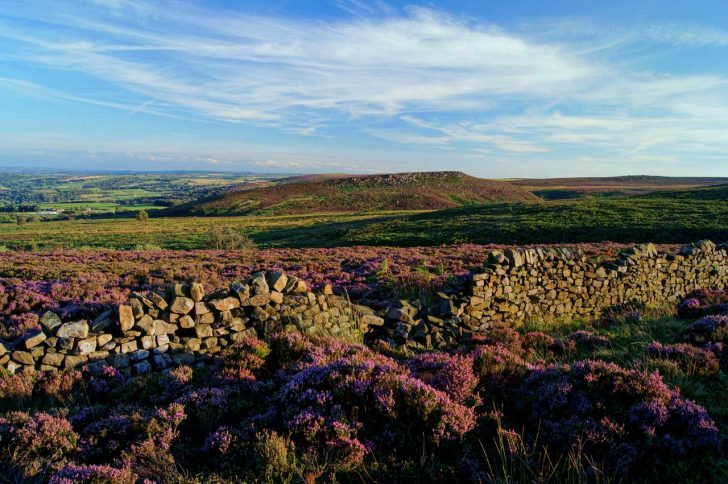
Kinder Scout is another favourite walk. My first trip there was in 2007, when our walking group joined a recreation of the original Mass Trespass, with the Ramblers, for Griff Rhys Jones’ Mountain documentary. As the first black person to join the Ramblers’ board of trustees, I learned a lot about the struggles of the working class to open up access to the countryside. It was really exciting and interesting to hear about their experiences.
We need joined-up thinking to address the issues and achieve CPRE’s goal of improving access to the countryside for all. Groups like CPRE need to reach out and build trust with communities that have traditionally been excluded from the countryside and the environmental sector.
Large organisations and policymakers need to partner with smaller community and BAME groups (which often lack funds, personnel, cultural capital and a seat at the table), to exchange knowledge, increase participation in the natural world, and change hearts and minds. Otherwise, we’ll still be speaking about these issues in 100 years’ time.
Maxwell Ayamba is a journalist, academic and founder of the Sheffield Environmental Movement, which promotes access to nature for BAME and refugee communities.
If you enjoyed this article you might like to see more on the personal and collective histories of Black people’s relationship with the countryside:
Sheree Mack on her exploration of race and nature
Maureen Morant on connecting with trees
Baroness Floella Benjamin’s first impressions of the English countryside
And celebrating Black history through five English landscapes
A version of this article was originally published in CPRE’s award-winning magazine, Countryside Voices. You’ll have Countryside Voices sent to your door three times a year, as well as access to other benefits including discounts on attraction visits and countryside kit from major high street stores when you join as a CPRE member. Join us now.
